Speaking at the opening of the meeting, Deputy Minister Ta Quang Dong said that on March 7, the Ministry of Culture, Sports and Tourism had a meeting with representatives of the Ministries of Education and Training; Labor, War Invalids and Social Affairs; Justice, the Government Office and related units on the draft Decree regulating the training of specialized and specialized occupations in the field of art. At this meeting, there were many opinions on the need for specific regulations for university and intermediate education in training specialized and specialized occupations in the field of art, and the need to add more nouns and words specific to the intermediate level.
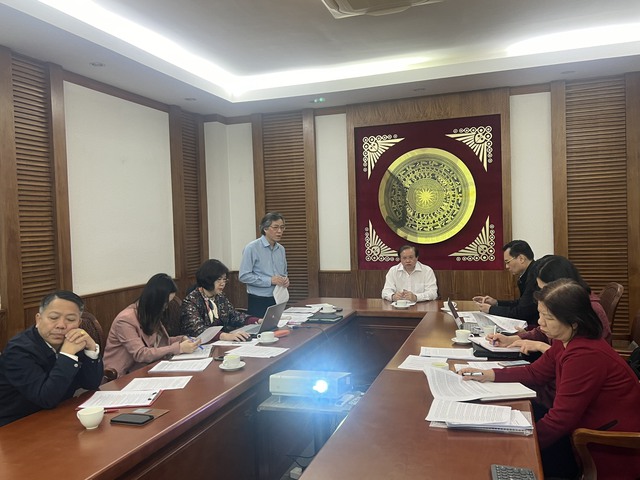
Deputy Minister Ta Quang Dong chaired the meeting.
Deputy Minister Ta Quang Dong said, "Currently, art secondary schools are teaching culture according to the regular education model. If cultural learning is not guaranteed, it will be difficult to recruit students as well as ensure that the schools are complying with regulations, have exams, and have identification codes.
Currently, it is necessary to raise specific issues for training in the field of arts. It affects the entire system of talent training, culture and arts. The Ministry of Culture, Sports and Tourism sees its responsibility in training human resources in culture and arts, the future of the country."
According to the Deputy Minister, the University Law has been issued and is very effective, but the current situation in talent training of the Ministry of Culture, Sports and Tourism is still problematic. "This is a human issue, so it is necessary to have research. Art students must achieve a minimum level, which is in line with the strategy of the Party and the State. Therefore, it is necessary to develop a Decree regulating training in specialized fields and professions in the field of art so that it is suitable for practice and solves the problems" - Deputy Minister Ta Quang Dong affirmed.
On November 19, 2018, the National Assembly passed Law No. 34/2018/QH14 on amending and supplementing a number of articles of the Law on Higher Education (hereinafter referred to as Law No. 34/2018/QH14), effective from July 1, 2019, in which the Government is assigned to specify in detail the training levels, diplomas and training certificates for a number of specific specialized training majors, specifically: In Clause 3, Article 1 of Law No. 34/2018/QH14 amending and supplementing Article 6 of the Law on Higher Education on training levels and forms of higher education, which stipulates: " The Government shall specify the training levels for a number of specific specialized training majors ".
In fact, the implementation of the Law and Decree documents shows that, in addition to the achieved results, some shortcomings and limitations have been revealed in higher education and vocational education activities in the field of specialized art training. Specifically:
Article 3, Clause 5, Article 19 of the Law on Vocational Education (Law No. 74/2014/QH13 dated November 27, 2014) stipulates that higher education institutions are allowed to participate in vocational education activities when they meet the conditions prescribed by law. However, on October 14, 2016, the Government issued Decree No. 143/2016/ND-CP stipulating investment and operating conditions in the field of vocational education, in which, Article 14, Clause 2 of this Decree stipulates: Higher education institutions are granted a certificate of registration for vocational education activities at college level when they meet the following conditions: The majors and occupations registered for vocational education activities are in the list of majors and occupations for training at intermediate and college levels issued by the Ministry of Labor, War Invalids and Social Affairs... At the same time, Article 1, Clause 2 of the Law amending and supplementing a number of articles of the Law on Vocational Education. Some articles of the Law on Higher Education 2018 stipulate: Universities and academies are higher education institutions that train and research in many fields, and are organized according to the provisions of this Law.
According to the above regulations, only higher education institutions (universities, academies) in the list of vocational training professions at college level issued by the Ministry of Labor, War Invalids and Social Affairs are granted certificates of registration for vocational training activities at college level, not university education institutions are granted certificates of registration for vocational training activities at intermediate level. This causes difficulties, inadequacies and is not suitable for specialized training in the field of art and greatly affects the quality of training and human resources working in the field of culture and art in Vietnam and international integration. At the same time, it affects the preservation and development of advanced Vietnamese culture with strong national identity. Therefore, the regulation that higher education institutions continue to provide training at intermediate and college levels should be included in the Decree regulating specialized training in the field of art on the basis of specifying Point 4, Clause 3, Article 1 of the Law on Amendments and Supplements to a Number of Articles of the Law on Higher Education 2018.
Article 13, Clause 2 of the Law on Vocational Education stipulates: The training time for intermediate level according to the establishment for those with a junior high school diploma or higher is from 01 to 02 years of study depending on the major or profession of training... According to the above regulations on intermediate level training time, it leads to an inappropriate situation, not suitable for the reality of training in specific specialized arts. Therefore, the training time for intermediate level needs to be regulated in the Decree regulating specialized specialized training in the field of arts, on the basis of specifying Clause 3, Article 6 of the Law on Education 2019.
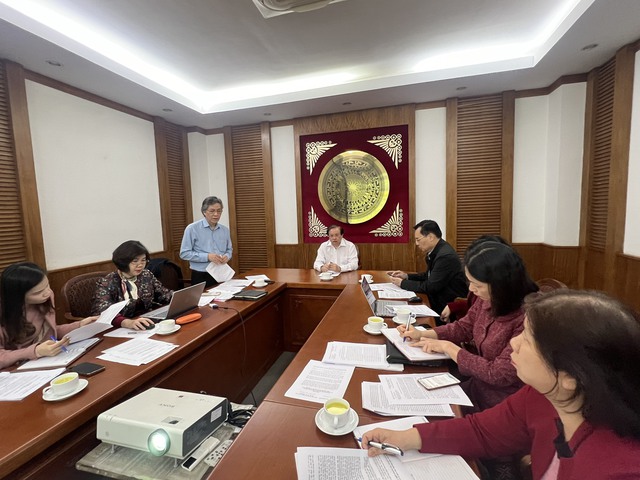
Meeting scene
Art training has a special specialized nature, so it is necessary to have separate regulations for this training field. To overcome the difficulties in this training activity, there must be close coordination and unity between the Ministry of Industry and Management and the Ministry of Field Management. Therefore, the draft Decree stipulates the tasks of the Ministries of Culture, Sports and Tourism; Labor, War Invalids and Social Affairs; Education and Training for the contents related to the organization of training activities at intermediate, college levels and levels of specialized university education in the field of art according to the Law.
Art training has its own characteristics from the recruitment process to the training process. Specifically: Students studying art majors must have talent, be selected from a young age, continuously trained for many years and the learning process has strict screening. Therefore, the intermediate training period is usually from 3 to 9 years, depending on the specificity of the training industry/profession. Art training is a close combination of theory and practice in a vocational manner, creating opportunities for students to develop high creativity.
In addition to studying specialized subjects, students must also study general cultural programs. Due to the nature of the profession, there are majors that do not train at the university level but mainly train at the intermediate level. It can be affirmed that the long-term intermediate training model combining general cultural subjects with art majors in art universities has been suitable for the specific nature of the training industry and has achieved high efficiency, training many artistic talents for the country and creating many works of art of national and international stature.
At the same time, many students who won prizes at national and international art competitions are concentrated in students studying at intermediate level in these educational institutions. Therefore, specialized training in the field of art at intermediate level should continue to have a training period of 3 to 9 years and is stipulated in the Decree on specialized training in the field of art.
For decades, the criteria for university entrance exams of higher education institutions in the fields of art such as music, dance, theater... at university level, in addition to the general regulations, candidates must have intermediate level or equivalent aptitude appropriate to the training major/specialization. Therefore, some higher education institutions in the field of art have trained at the intermediate, college, university and postgraduate levels at the same time. The intermediate training model combining general cultural subjects with art majors has been implemented very effectively by higher education institutions, aiming to create the most favorable and best conditions for students to simultaneously perform both tasks, studying culture and studying majors right at school.
Intermediate training in the field of art, in addition to providing human resources for society, training talents for the country, this level of training also creates a source of university-level recruitment for higher education institutions. Intermediate students at these higher education institutions are always taught by a team of lecturers with academic titles, degrees, experts, talented artists with high qualifications, good expertise, and professional prestige to discover and nurture students' innate talents and abilities from an early age. On that basis, appropriate teaching methods are proposed to promote creativity, develop thinking and artistic appreciation of learners.
At the same time, the school's teaching staff always creates conditions and opportunities for students to participate in performance internships with professional artists or to introduce them to domestic and international art competitions, in order to help improve their knowledge, skills, courage, and professional practice experience... There are lecturers who teach at the same time at intermediate, university and postgraduate levels.
Due to the nature of the training industry, the training scale of art universities is very low, enrollment and training focus on quality, not quantity, so students who win prizes at professional and prestigious art competitions at home and abroad mainly focus on students studying at intermediate level at these universities.
Thus, it can be affirmed that higher education institutions specializing in the field of art are the cradle of training and nurturing the country's artistic talents and this training model is very effective, has been affirming the position and standing of art, including the field of music of Vietnam in the region and the world. In addition, higher education institutions in the field of art are also responsible for preserving and developing traditional and national art forms through training and performing well the task of international cooperation in training. Currently, some countries such as Russia, China, Japan, Korea, the US, Germany... are also training according to the intermediate and college training model in universities and academies.
According to the Ministry of Education and Training, the difficulties and problems of the culture and arts sector in the current training mechanism really need a special mechanism. However, it is necessary for coordination in the construction of the Decree of competent agencies.
Deputy Minister Ta Quang Dong said that the Decree regulating specialized training in the field of art is really necessary.
"All sectors that train cultural and artistic talents need a policy like the Decree regulating training in specialized fields and professions in the field of art. The Decree is an important basis to promote talent training in Vietnam. We should have a realistic view of the need to train knowledge, improve student quality, ensure the rights of students and parents, thereby having high-quality human resources for the cultural and artistic sector" - the Deputy Minister shared./.
Source








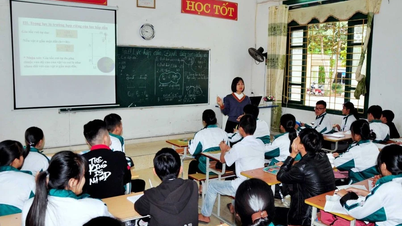

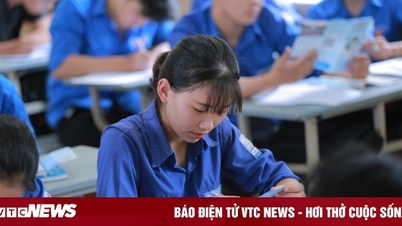

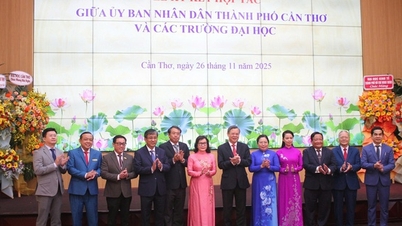

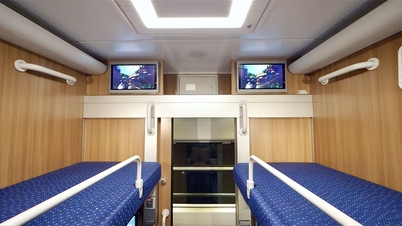

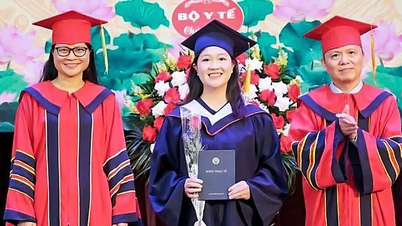

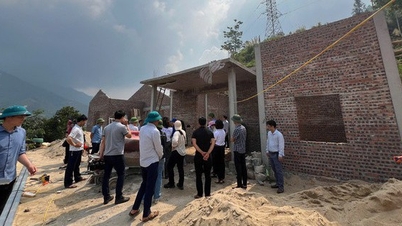

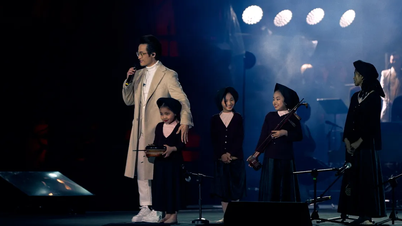

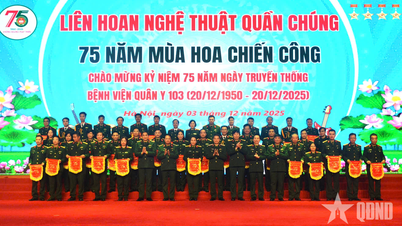



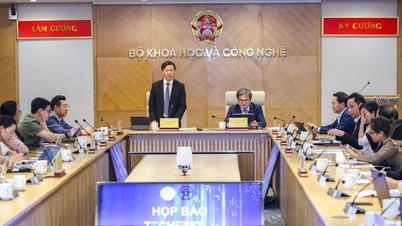

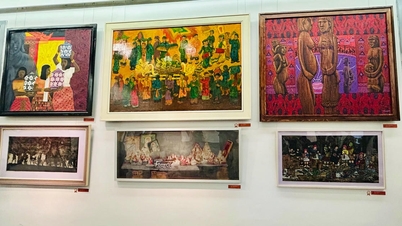





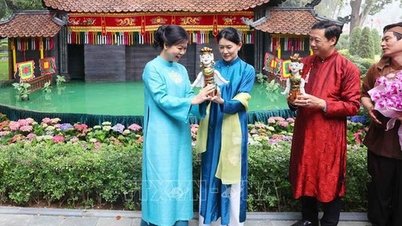
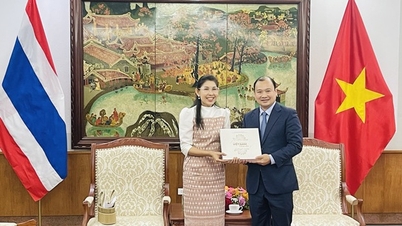
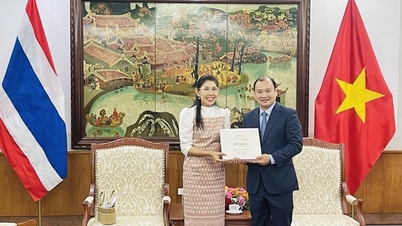

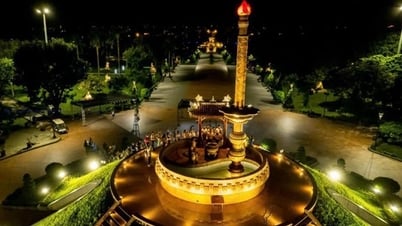
![[Photo] Parade to celebrate the 50th anniversary of Laos' National Day](/_next/image?url=https%3A%2F%2Fvphoto.vietnam.vn%2Fthumb%2F1200x675%2Fvietnam%2Fresource%2FIMAGE%2F2025%2F12%2F02%2F1764691918289_ndo_br_0-jpg.webp&w=3840&q=75)
![[Photo] Worshiping the Tuyet Son statue - a nearly 400-year-old treasure at Keo Pagoda](/_next/image?url=https%3A%2F%2Fvphoto.vietnam.vn%2Fthumb%2F1200x675%2Fvietnam%2Fresource%2FIMAGE%2F2025%2F12%2F02%2F1764679323086_ndo_br_tempimageomw0hi-4884-jpg.webp&w=3840&q=75)























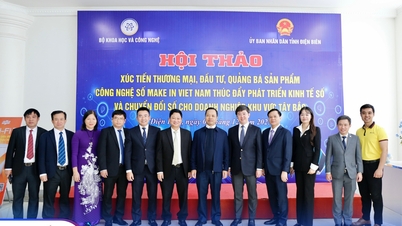







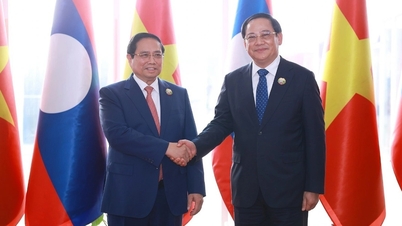















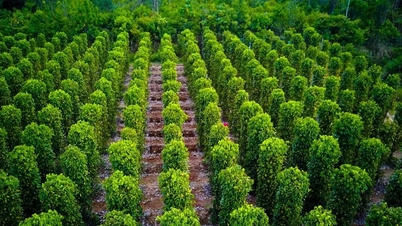

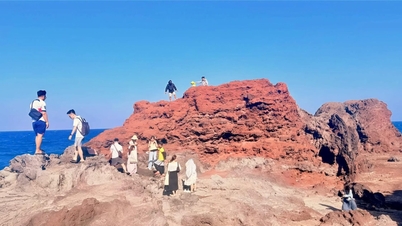





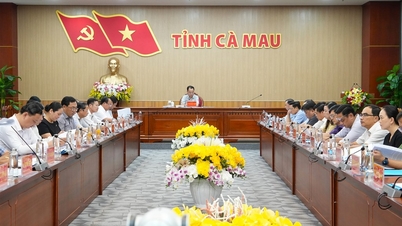












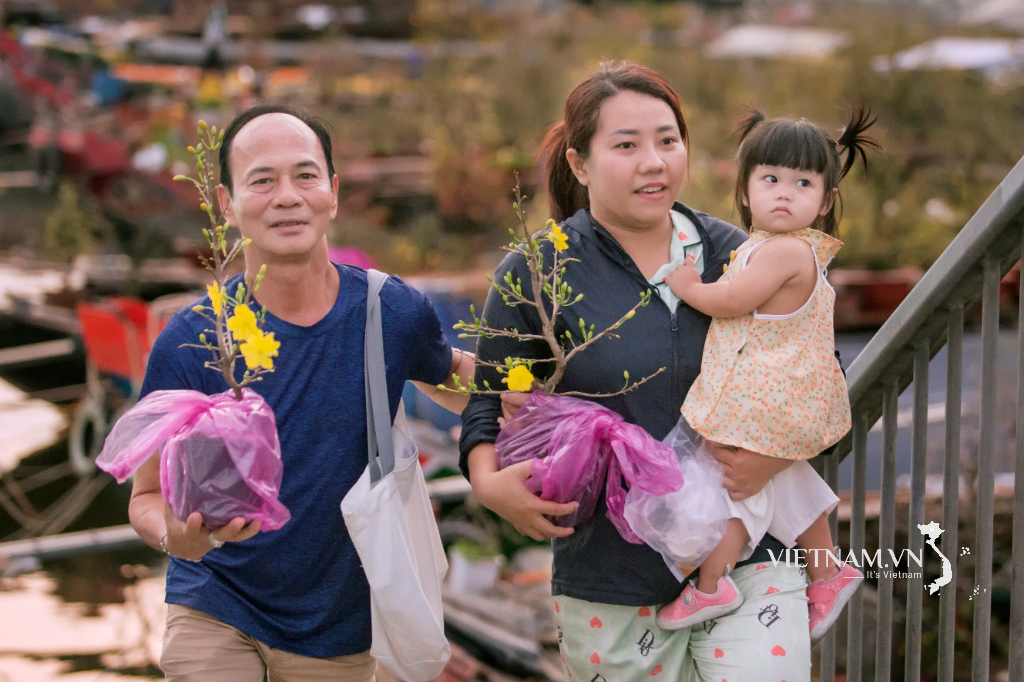

Comment (0)